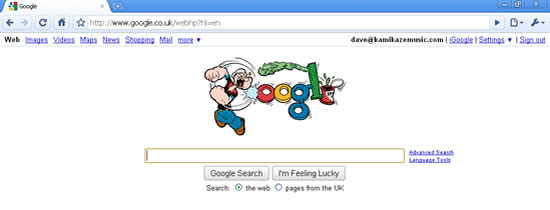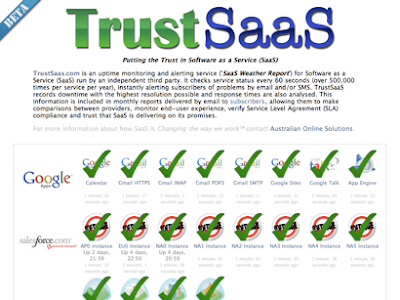Five Technologies That Will Keep Shaping the Web in 2010
Page 1 of 1
 Five Technologies That Will Keep Shaping the Web in 2010
Five Technologies That Will Keep Shaping the Web in 2010
As we’re coming to the end of this year, everyone starts to looktowards the next one and there will no doubt be an upsurge of articlespredicting the web trends of 2010 in the next days to come. However, inthis article, we’ll be talking about what’s actually driving thesetrends now, and what they mean for the future of the internet

1. CSS3, HTML5 and Fonts as a Service

CSS3,HTML5, and Fonts as a Service such as Typekit that cater to webbrowsers that already support the @font-face rule, are giving webdesigners the creative freedom that they have been coveting for a longtime.
CSS3 is opening up various new options for styling contenton the web, from multiple backgrounds on page elements, better abilityto select and style elements with greater specificity, and colorgradients without reliance on static graphics, to simpler aestheticalimprovements such as support for rounded corners without the need forcomplicated sliding doors techniques or JavaScript.
HTML5 isslowly but surely changing the way we mark up our pages, bringing uscloser to the holy grail of the semantic web, opening up native supportfor open format multimedia such as video and audio, and bringing usbetter ways to interoperate with the content of a website.
Anotherchange that web designers have been wishing for is being able to useany font on a web page, without using static CSS background imagereplacement or relying on JavaScript and Flash. The development oftools like Typekit and greater support for the @font-face rule areenabling site builders to use a much wider range of fonts in theirdesign.
So what will change?
These are all web technologiesthat are guaranteed to make the web a more aesthetically pleasingplace. Of course, expect these new things to be misused by Sundaydriver designers; there will be some horrible font choices andmisemployed color gradients that will produce unreadable and tacky pagedesigns, but it’s the opportunities that they open up for capable andcreative designers that will be most interesting.

2. Ways we browse the web
Thebrowser landscape is alive and well, with better and faster webbrowsers such as Google Chrome, Firefox, Safari, and Opera. Web userstoday are provided with many choices that will surely drive competitionand one-upping from these companies – stressful for their developers,but great for consumers.
The browser wars is in full force, andunlike the preceding browser wars where Internet Explorer dethronedother browsers to take hold of a majority browser share, IE is shapingup to being the "dethronee" this time around.
And changes inbrowsing the web aren’t just limited to the web browser competition,the way we digest content from the web is increasingly becoming removedfrom the traditional "sit in front of your desktop" way. Smart phonesare becoming more common, TV’s are becoming web-enabled–and as aregaming consoles such as the PS3 and Netbooks and mobile devices such asthe iPhone and the Droid are giving users an experience on a smallerscreen than a traditional laptop.
Moreover, browsers themselvesare changing. The launch of Google Chrome brought the WebKit engine, alayout engine that has a big portion of CSS3 and HTML5 specificationsalready implemented, to Windows-based computers better than Apple’sSafari port to Windows, and it may yet be a bigger milestone than manyfirst thought. With Google aiming for a 10% share of the market overthe next couple of years, a big push for users may well be coming. Alarge shift from the dominant web browser, Internet Explorer, isunderway and may be successful next year. In Germany, Mozilla Firefoxis close to overtaking IE’s market share as we speak.
Thesefactors are revising the way we think about web design andaccessibility. Do you have a mobile version of your site? What does itlook like on a small screen? What does it look like on a large screen?What does it look like in a WebKit versus Gecko versus Trident browserlayout rendering engine?
Attitudes towards viewing of websitesacross different media is changing as well, designers are increasinglybecoming of the opinion that designs do not need to render the sameeverywhere, nor do they need to give the same user experience acrossall web browsers.
So what will it change?
There’s a goodchance that you’ll start to see websites that don’t look the same inevery browser. Techniques for progressive enhancement are morecommonplace than before, giving users of modern web browsers a betterweb experience than those who will not or cannot use them. Furthermore,there’s already widespread acceptance towards foregoing support forantiquated browsers, putting the burden of getting users upgraded onthe browser makers, and not the designers. This type of forwardthinking will only grow in the upcoming year. What’s more, the changesin the way we view the web will shift focus to content, functionalityand accessibility, but by no means at the expense of good, interestingand inspiring design.

Noone can deny that 2009 has been a big year for social media: Twitter,for example, has become the buzzword in many a boardroom and office.It’s obvious that it will continue to a big part of the web in thefuture.
In many ways, the growth of platforms such as Twitterand Facebook has led the web to be much more community-oriented. Bigchanges could happen within social media and, no doubt, will be led bymonetization of the media.
One of the big questions revolvesaround how you measure the impact and value of social media and how toget that value back. How valuable are 1,000 twitter followers? Do youstart charging for the service? Answering all these questions will leadto significant changes over the next year in the social media arena.
Alongwith these changes will come increased focus in getting information inreal-time. Google is already discussing real-time search to leveragethe immediate and breaking information that can be found on sites likeTwitter. How these changes are integrated into the current web system,especially in terms of search engine technology, could precipitate intosome interesting developments and innovation in the way we seekinformation online.
So what will it change?
With more peopleparticipating in the creation of information on the web, the way inwhich we obtain information will shift from being from a singularsource, into a more community-created source. Looking for informationabout, say, a car repair shop will show you recent tweets and Facebookupdates about that company instead of outdated and static information

WhilstCSS3/HTML5 has started to step on the toes of JavaScript, JavaScriptitself has started to inch into the territory of Flash. The growth offrameworks such as jQuery and has made rich client-side interaction andasynchronous/seamless user experiences a reality. This leads to easierdeployments of web applications, which in turn, increases competition,which in turn, leads to innovation.
JavaScript is alreadystepping into what, in the past, we would associate as being Flash’sterritory, such as interactive games (which can be used for trainingand distance-learning applications) and complex and interactive datavisualization. It should also enable us to replicate rich interfacesand flash type experiences in a much more accessible way.
Andvery recently, 10 years after the last major revision, JavaScript(known as ECMAscript in web standards organizations) has just finisheda major revision of its specifications for the language. Once browsercompanies adopt these standards, web developers will be provided withmore tools to improve their capabilities in creating web applications.
So what will it change?
BecauseCSS3 and HTML5 will replace a lot of what JavaScript is doing now (i.e.complex element selections, dynamic rounded corners, handling real-timeeditable web pages), we will see a surge in JavaScript developing intobeing focused solely on handling programming logic of webapps on theclient-side. With the news of the major revision on JS specifications,we will see a progression towards better web applications that caninteroperate much better with other web apps (for example, a major goalfor the new set of specs is the security of JSON objects).

5. Software as a Service (SaaS)
Softwareas a Service business models have been knocking around for years.Top-notch SaaS such as 37 Signals products and Google Enterprise aremore commonplace now than ever before.
The competition isfierce; the technologies are becoming affordable and requiring littleupfront costs, which gives the little guys a chance to compete with thebigger guys. In the next year, we’ll see this competition increase, andhopefully, the outcome is innovation in web apps.
So what will it change?
SaaS’sas a business model will continue to replace more traditional softwarethat require you to install and run them on your desktop. With so muchmore people connected to the internet, the demand is oninternet-enabled, interoperable applications. In 2010, we are in forsome surprise improvements driven by a need to stand out from the crowd
.

3loomi- الجنس :

عدد المساهمات : 826
النقاط : 52509
التقييم : 10
تاريخ التسجيل : 2010-09-01
 Similar topics
Similar topics» So Fresh The Hits Of Summer 2010 And The Best Of 2010
» فرش الفوتوشوب 2010
» How is Being New to Twitter Different in 2010?
» BEST PRO Collection 2010 v6
» الغاز 2010
» فرش الفوتوشوب 2010
» How is Being New to Twitter Different in 2010?
» BEST PRO Collection 2010 v6
» الغاز 2010
Page 1 of 1
Permissions in this forum:
You cannot reply to topics in this forum|
|
|
 Home
Home